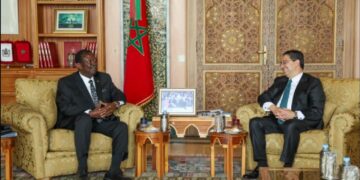Kenyan business conditions showed continued improvement in January 2025, with expansions in output and new orders, according to Stanbic Bank Kenya’s latest Purchasing Managers’ Index (PMI). The index recorded a score of 50.5, signaling growth for the fourth consecutive month, albeit at a slower pace than the previous months. This expansion reflects the resilience of Kenya’s private sector despite ongoing economic challenges.
Sustained Growth in Output and New Orders
January’s PMI reading of 50.5 indicates that Kenyan firms experienced increased business activity. Companies reported higher sales, boosted by enhanced marketing efforts, client referrals, and improved cash flow. Additionally, firms were able to expand their stock levels, ensuring they could meet rising demand. This marks a positive continuation of the growth trajectory seen in the final quarter of 2024.
However, while businesses maintained an upward trend, the pace of growth slowed. The latest data reveals that January’s output expansion was the weakest in the current four-month growth cycle, with sales growth easing to its slowest rate since October 2024. This moderation suggests that firms are cautiously navigating persistent economic headwinds.
Inflationary Pressures Moderate but Persist
Price pressures remained a key challenge for Kenyan businesses in January. Although inflationary pressures eased slightly compared to December’s 11-month high, firms still faced increased input costs, primarily due to higher taxes on imported goods. In response, many businesses adjusted their selling prices upwards to offset these rising costs.
Staff costs, on the other hand, remained stable, offering some relief to businesses managing operational expenses. Overall, while firms continue to pass on higher input costs to customers, the rate of price increases softened, reflecting a more stable economic environment compared to the end of 2024.
Employment Decline Reflects Business Caution
For the first time since August 2024, employment levels in Kenyan firms declined, albeit marginally. This drop in staffing numbers signals cautious business sentiment amid economic uncertainties. The decline follows three months of employment growth, suggesting that firms are adjusting to the slower pace of new orders and overall business expansion.
Similarly, purchasing activity saw a mild increase, reflecting firms’ strategic approach to inventory management. Businesses reported an uplift in stocks purchased, ensuring they could meet sales demand while preparing for potential supply chain disruptions.
Christopher Legilisho, an economist at Standard Bank, highlighted the resilience of Kenyan businesses while acknowledging the ongoing challenges. He noted that firms continue to experience positive growth in new orders and output, but economic conditions remain difficult for many. The expectation is for inflationary pressures to ease slightly in the coming months, providing some relief for businesses and consumers alike.
Kenyan business conditions have started 2025 on a positive note, with continued expansions in output and new orders. However, the pace of growth has slowed, and firms are adjusting to persistent economic challenges, including price pressures and cautious consumer demand. While inflationary pressures have moderated, businesses remain vigilant about costs and market conditions. The employment decline reflects a prudent approach to workforce management, aligning with the broader sentiment of cautious optimism in the private sector.
As Kenya moves forward, businesses will need to balance strategic growth initiatives with careful financial planning to navigate the evolving economic landscape effectively.










